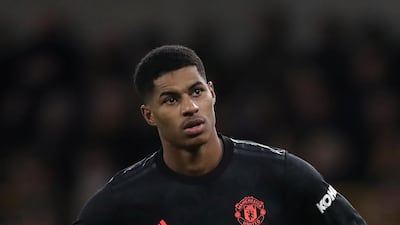Former Manchester United and England captain Wayne Rooney has criticised authorities for their handling of the pay cut process, accusing the government and the Premier League for putting players in a "no-win situation".
Rooney, now with Championship side Derby, wrote an impassioned column in the Sunday Times in which he claimed his fellow professionals were being lined up as "easy targets" in the wider response to the coronavirus crisis.
Rooney made it clear he had both the means and the will to make significant financial contributions, either in the form of salary reductions or direct donations to the NHS, but felt the public pressure being exerted on players was unhelpful.
The Premier League's suggested 30 per cent wage cut or deferral strategy was discussed in a conference call with the Professional Footballers' Association and the League Managers Association on Saturday, but initial talks were already ongoing before key political figures, including Health Secretary Matt Hancock, called for them to take action.
"If the government approached me to help support nurses financially or buy ventilators I'd be proud to do so - as long as I knew where the money was going," Rooney wrote.
"I'm in a position where I could give something up. Not every footballer is in the same position. Yet suddenly the whole profession has been put on the spot with a demand for 30 per cent pay cuts across the board. Why are footballers suddenly the scapegoats?
"How the past few days have played out is a disgrace. First the Health Secretary, Matt Hancock, said that Premier League players should take a pay cut. He was supposed to be giving the nation the latest on the biggest crisis we've faced in our lifetimes.

"Why was the pay of footballers even in his head? Was he desperate to divert attention from his government's handling of this pandemic?"
Rooney went on to question the wisdom of the Premier League in pre-empting behind-the-scenes talks involving players with its own proposals for sweeping reductions.
"It seemed strange to me because every other decision in this process has been kept behind closed doors, but this had to be announced publicly," he said. "Why? It feels as if it's to shame the players - to force them into a corner where they have to pick up the bill for lost revenue.
"In my opinion it is now a no-win situation. Whatever way you look at it, we're easy targets."
The PFA said its members were resolved to playing their part but warned that a projected 30 per cent salary reduction would cost the country £200 million (Dh901m) in lost tax receipts.






























